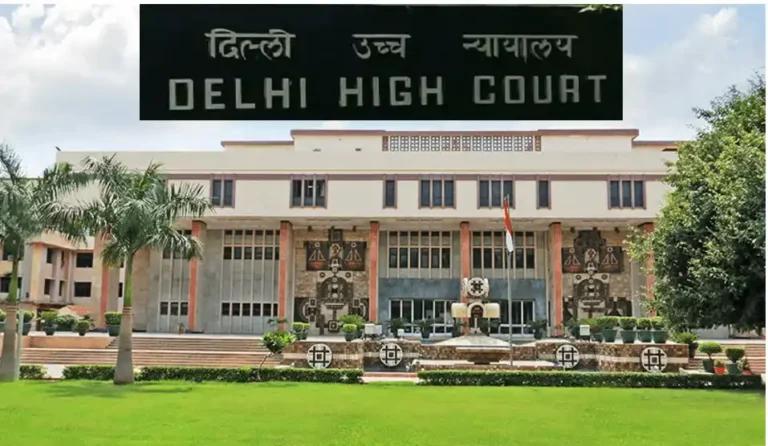The Delhi High Court has ruled that an arbitration petition filed without the essential document—the arbitral award—is legally non-existent ("non est") and cannot be used to extend the limitation period under Section 34(3) of the Arbitration and Conciliation Act, 1996. This judgment was delivered by Justice Purushaindra Kumar Kaurav in a case between the Union of India (Ministry of External Affairs) and M/s GR-Gawar Joint Venture.
The court emphasized that a filing made solely to pause the limitation clock, without attaching the impugned arbitral award or necessary documents, cannot be treated as valid. The ruling clarifies that curing defects after the limitation period does not validate an originally defective application.
Read Also:- Delhi HC Reserves Verdict on Parents’ Petition Against DPS Dwarka Over Fee Hike and Student Expulsions
"A filing lacking critical documents like the arbitral award is non est in law and has no legal existence," the Court stated.
Background of the Case
The case arose from a contract for road construction in Nepal's Terai region (Phase-I, Contract Package-01). The Union of India had entered into an agreement with a joint venture—M/s GR-Gawar. Disputes arose, leading to an arbitral award dated 3 January 2024, which was later modified on 2 March 2024.
Challenging the award, the petitioner filed an application under Section 34 of the Arbitration Act on 20 June 2024. However, the application did not include the arbitral award. This prompted the respondent to raise preliminary objections regarding maintainability.
Read Also:- Supreme Court Condemns Ambiguously Drafted Arbitration Clauses, Urges Suo Motu Action in Malafide Cases
The respondent argued that since the award was not attached, the petition was incomplete and thus had no legal standing. Relying on previous court decisions, they asserted that such a defect makes the filing invalid from the outset. The respondent cited the Pragati Construction Consultants case to support that omission of the arbitral award cannot be treated as a minor error.
In contrast, the petitioner claimed that the delay in filing was only 18 days past the 90-day limitation period and should be condoned under the Act's proviso. They submitted that the delay occurred due to bona fide and unavoidable circumstances and was within the permissible 30-day extended window.
Court’s Findings
The Court noted a striking disparity in the document sizes: the initial filing was 146 pages, while the final submission on 20 January 2025 spanned 6,677 pages. This clearly indicated that the original filing lacked critical content and was done only to meet the limitation deadline artificially.
“Filing of the Arbitral Award under challenge is not a mere procedural formality but an essential requirement,” the Court observed, citing the Supreme Court's ruling in Sunny Abraham v. Union of India.
The Court further stated that although minor procedural defects might not render a filing non est, cumulative defects—especially the absence of the arbitral award—justify such a finding. The petitioner failed to justify the delay with a day-to-day explanation as required under the law.
“When filing is evidently incomplete and lacks intent to pursue proceedings diligently, it cannot be condoned,” the Court held.
It also stressed the importance of following Rule 5 of the Delhi High Court Rules, which provides timelines for curing defects. If such defects are not rectified within the 30-day window, the matter may be treated as a fresh filing.
The Delhi High Court concluded that the initial filing was a deliberate attempt to stop the limitation period without fulfilling mandatory legal requirements. Hence, it was declared "non est" and invalid in law. The Court directed the Registry to strictly adhere to procedural rules in the future.
Case Title: UNION OF INDIA Versus M/S GR-GAWA R(J.V.)
Case Number: O.M.P. (COMM) 38/2025, I.A. 1632-1633/2025, I.A. 1635/2025 and I.A. 6142/2025
Judgment Date: 24/04/2025
For Applicant: Dr. B. Ramaswamy, CGSC.
For Respondent: Mr.Kapil Arora, Ms.Palak Nagar and Ms.Anmol, Advocates.












